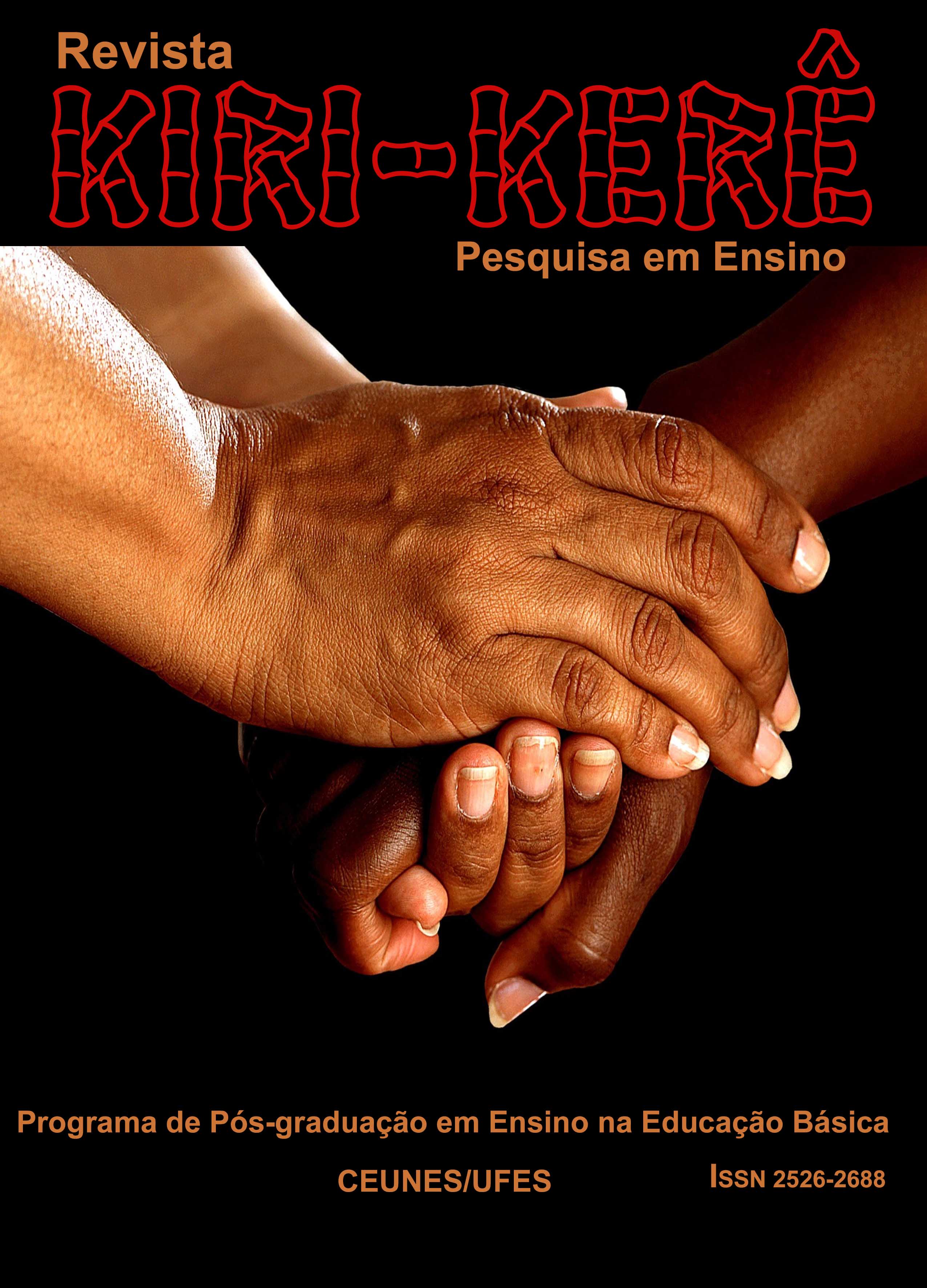A extração de DNA no ensino de ciências e biologia
desenvolvendo a temática por meio da sequência de ensino investigativo
DOI :
https://doi.org/10.47456/krkr.v1i14.38788Mots-clés :
Protagonismo; Contextualização; Ensino Aprendizagem; Atividade PráticaRésumé
Visando a contextualização de conteúdos com o cotidiano dos alunos como forma de proporcionar uma aprendizagem significativa, foi desenvolvida a atividade de extração de DNA de frutas com o objetivo de adaptar conteúdos e práticas científicas em linguagem informal para melhor compreensão dos discentes. Como parâmetro metodológico, utilizou-se a Sequência de Ensino Investigativo desenvolvida por meio de diferentes etapas com alunos dos Anos Finais do Ensino Fundamental e do Ensino Médio. Com os resultados obtidos foi possível analisar que aulas em laboratório são imprescindíveis durante o ensino de Ciências e/ou Biologia, tendo em vista que possibilita aos alunos terem contato direto com o objeto de estudo, analisando os resultados e desenvolvendo hipóteses a fim de gerar suas conclusões, propiciando uma melhora significativa na qualidade da aprendizagem, permitindo aos alunos exercitarem a capacidade de pensar, refletir e tomar decisões.
Téléchargements
Références
AZEVEDO, M. C. P. S. Ensino por investigação: problematizando as atividades em sala de aula. In: CARVALHO, A. M. P. (Org). Ensino de Ciências: unindo a pesquisa e a prática. São Paulo: Cengage Learning, 2009.
BRASIL. Ministério da Educação. Base Nacional Comum Curricular. Brasília, 2018.
BRITO, I. A. JUNGES, L. J. S. F.; DA SILVA OLIVEIRA, J. M. Atividades práticas de extração de DNA de diferentes materiais orgânicos como forma de estimu-lar o ensino-aprendizagem. Revista Maiêutica, Indaial, v. 5, n. 01, p. 41-56, 2017. disponível em <https://189-016-006-142.asselvi.edu.br/index.php/BID_EaD/ar-ticle/view/1757/865>. Acesso em: 25 nov. 2020.
CARVALHO, A. M. P. (Org.). O ensino de Ciências e a proposição de sequências de ensino investigativas. Ensino de Ciências por investigação: condições para implementação em sala de aula. São Paulo: CENCAGE Learning, 2013.
DUSCHL, R. La valorización de argumentaciones y explicaciones: promover estratégias de retroalimentación. Ensenãnza de lãs Ciências, v. 16, n. 1, p. 3-20, 1998.
FREIRE, P. Ensinar exige curiosidade. São Paulo: Paz e Terra, 1996.
GONÇALVES, T. M. A Guerra Imunológica das células contra os patógenos: A proposta de um modelo didático tridimensional de baixo custo para simulação da resposta imune celular mediada por linfócitos T CD8+. Brazilian Journal of Development. v.7, n.1, p. 4854-4860, 2021. Disponível em: <https://www.brazilianj-ournals.com/index.php/BRJD/article/view/23099/18554> Acesso em: 26 de jan. 2021.
KRASILCHIK, M. Prática de Ensino de Biologia. 4. ed. São Paulo: Edusp, 2004.
KRASILCHIK, M.. Prática de Ensino de Biologia. São Paulo: USP, 2012.
SASSERON, L. H.; CARVALHO, A. M. P. Almejando a alfabetização científica no ensino fundamental: A proposição e a procura de indicadores do processo. Investigações em Ensino de Ciências, v. 13, n. 3, p. 333-352, 2008.
VALENTE, J. A. Blended Learning e as mudanças no Ensino Superior: a proposta da sala de aula invertida. Educar em Revista: Dossiê Educação a Distância, Curitiba: UFPR, 2014, Edição especial n. 4/2014. p. 79-97 Disponível em: < http://www.scielo.br/pdf/er/nspe4/0101-4358-er-esp-04-00079.pdf >. Acesso em: 20 ago. 2021.
ZIMMERMANN, L. A importância dos laboratórios de ciências para alunos da terceira série do ensino fundamental. 2005. 141 f. Dissertação (Mestrado em Ciências e Matemática) - Pontifícia Universidade Católica do Rio Grande do Sul, Porto Alegre, 2005.
Téléchargements
Publiée
Numéro
Rubrique
Licence
© Daniel Augusto Bolsanelo Belcavello, Manoel Augusto Polastreli Barbosa 2022

Ce travail est disponible sous licence Creative Commons Attribution - Pas d’Utilisation Commerciale 4.0 International.
Os autores aceitam, quando do envio de seus trabalhos, a cessão dos direitos editoriais dos mesmos.









